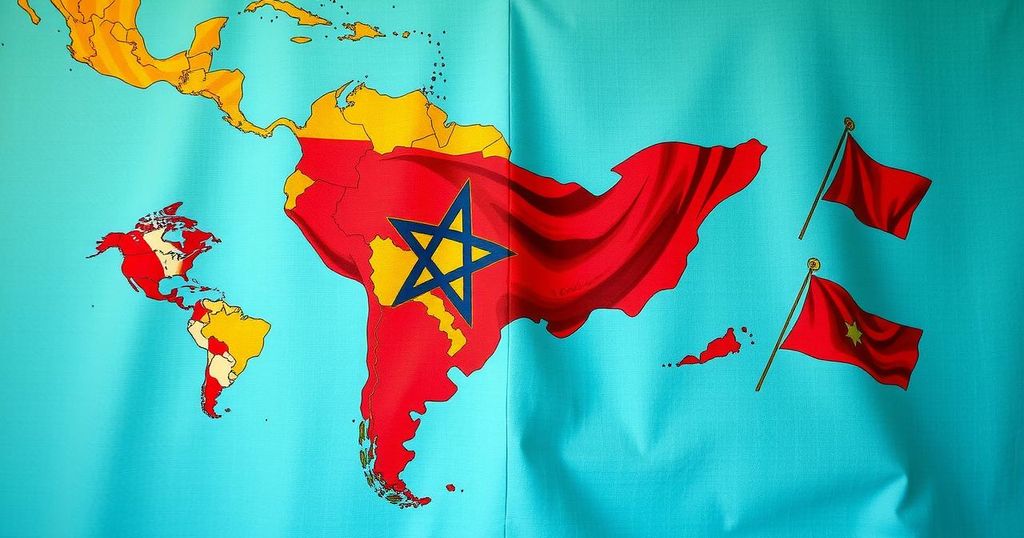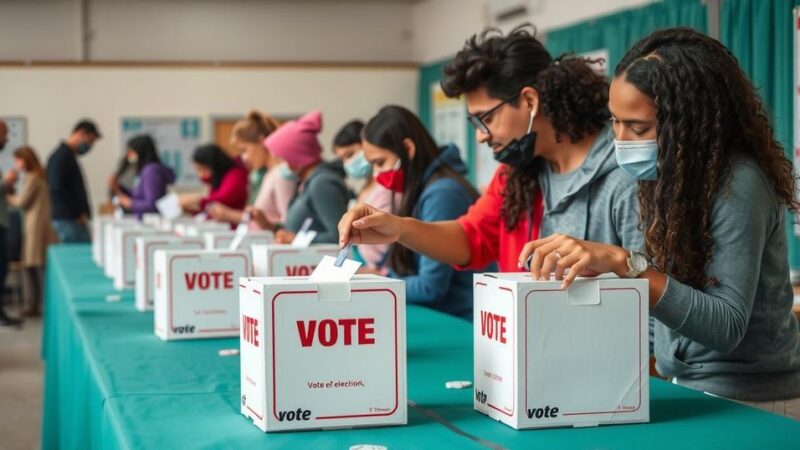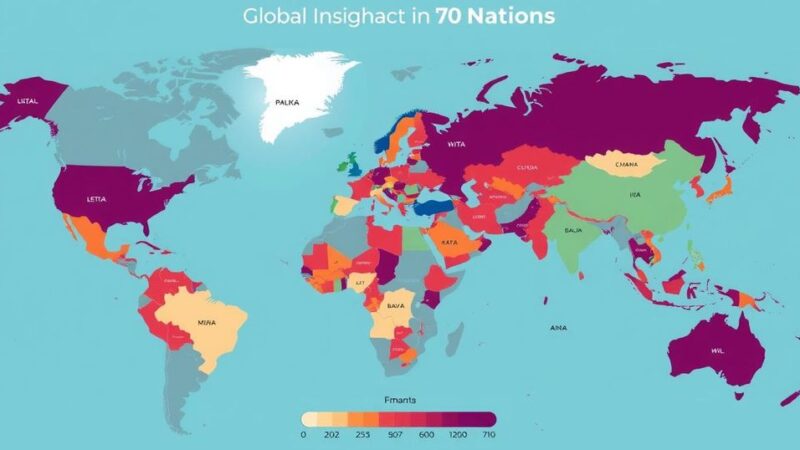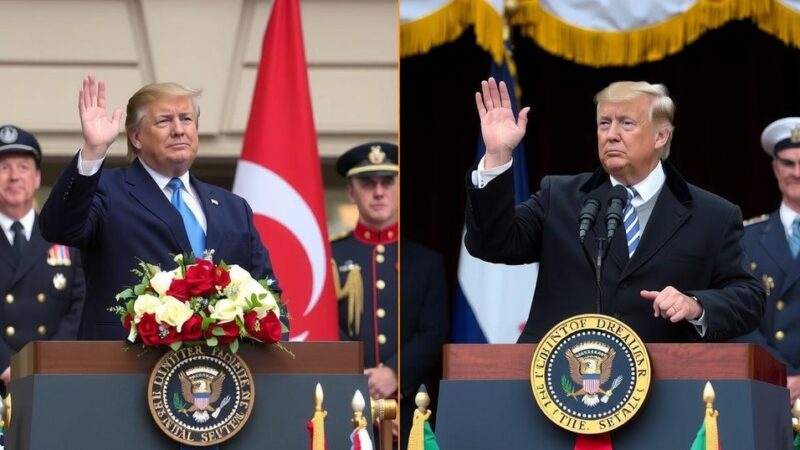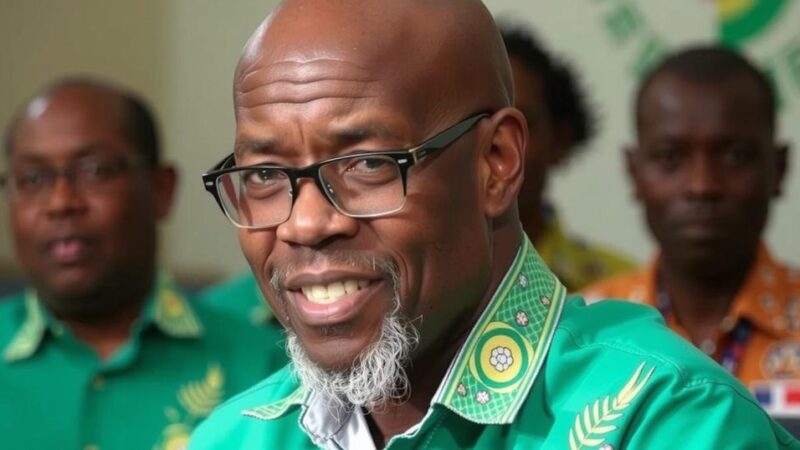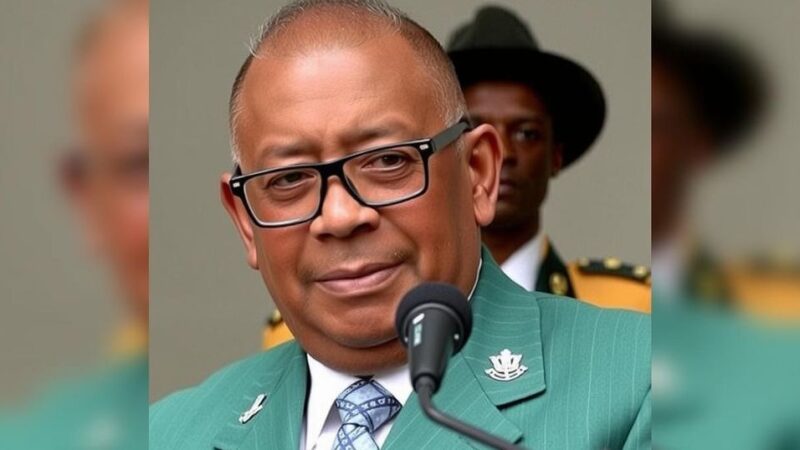In 2024, Latin American countries notably shifted their support from separatism to Morocco’s autonomy proposal regarding the Sahara issue. Guided by King Mohammed VI’s diplomatic efforts, numerous nations, including Ecuador, Panama, and Chile, have retracted support for the Polisario Front, recognizing the legitimacy of Morocco’s claims. This transformation indicates a larger trend in global diplomatic relations and reflects Morocco’s effective engagement with Latin America.
In 2024, a significant transformation occurred in the stance of Latin American countries concerning the Moroccan Sahara issue, resulting in increased support for Morocco’s autonomy proposal. Morocco’s diplomatic initiatives, prominently guided by King Mohammed VI, have effectively reinforced the nation’s territorial claims while diminishing the separatist narratives propagated by the Polisario Front. This shift in perspective has been echoed in several nations from Ecuador to Chile, with numerous countries aligning with Morocco’s position on the issue.
King Mohammed VI’s recent address on the anniversary of the Green March underscored the necessity for ongoing efforts to safeguard Morocco’s territorial integrity. His call to action was evidenced by the growing alignment of Latin American nations with Morocco’s diplomatic strategies, particularly in the context of autonomy in the disputed Sahara region. Ecuador led the way by suspending recognition of the Polisario in October 2023, a decision echoed by Panama in November, which formally severed ties with the separatist group.
This emerging consensus illustrates an increasing acknowledgment among international communities regarding the dubious legality of the Polisario claims. Prominent figures, such as Miguel Angel Rodriguez Mackay, a former Peruvian Foreign Minister, remarked on the inevitability of retraction of support for the Polisario. In Paraguay, a parliamentary resolution has expressed explicit backing for Morocco’s claim to territorial integrity. Similarly, Brazilian legislative support for the autonomy proposal was articulated during diplomatic engagements, enhancing Morocco’s credibility further afield.
Additionally, Chile’s Foreign Minister publicly endorsed Morocco’s quest for a just and lasting political solution rooted in autonomy. Efforts were underscored by enhanced parliamentary relationships through the creation of an economic forum aimed at fostering collaboration between Morocco and Latin American nations. The establishment of such forums reaffirms the commitment to strategic cooperation across the region.
Beyond diplomatic frameworks, Morocco has succeeded in shifting public perception within Latin America, utilizing educational institutions and media outlets. This shift signifies a decline in traditional support for the Polisario, previously championed by Algeria. The newfound endorsement from key Latin American political elites reflects a growing acknowledgment of the legitimacy surrounding Morocco’s autonomy proposition.
The Moroccan Sahara issue has historically been a contentious subject, primarily due to the claims made by the Polisario Front, which advocates for Western Sahara’s independence. This region has seen a protracted conflict that has drawn attention from various international players, including Latin America. Recently, Moroccan diplomatic endeavors have gained momentum, fostering an appreciation for Morocco’s autonomy initiative among Latin American countries. The geopolitical implications of this support could potentially reshape alliances and diplomatic ties within and beyond the region, highlighting Morocco’s strategic significance on the global stage.
In conclusion, the shift in Latin America’s stance towards the Moroccan Sahara issue denotes a critical evolution in international diplomacy, emphasizing increased support for Morocco’s autonomy narrative. Countries such as Ecuador, Panama, Peru, Brazil, Paraguay, and Chile have collectively moved to bolster Morocco’s claims while undermining the previously recognized legitimacy of the Polisario Front. This trend reflects not only the effectiveness of Moroccan diplomacy but also a broader re-evaluation of regional conflicts and their resolutions, promoting a vision of stability and cooperation in international relations.
Original Source: fesnews.media

